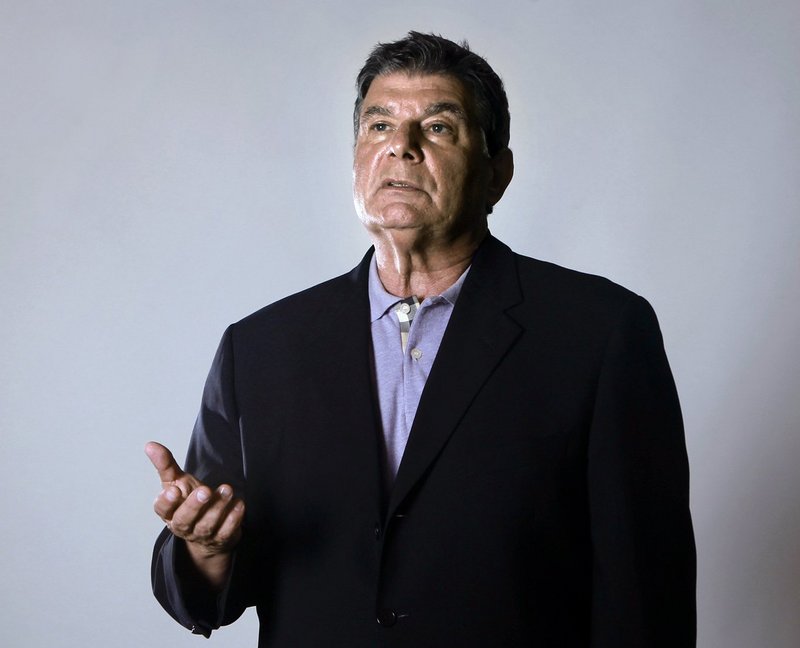MIAMI – As a mother of two in the throes of a divorce, Whitney Collins inquired about ATI Career Training Center because she wanted a better life for her young boys.
The admissions rep called almost daily, pressuring her to enroll. Though the $46,000 cost for ATI’s two-year Ultrasound Technology program seemed awfully steep, Collins was assured that federal grants and loans — paid directly to the school by the government — would make it affordable.
She took the bait.
Six months into her studies at the Miami Gardens campus, ATI shuttered its doors under the weight of two damaging whistleblower lawsuits in Florida and Texas that claimed the school was an elaborate fraud, designed to siphon millions in student aid from the government while sticking students with an overpriced, often worthless diploma.
The suits were settled last month. ATI, which is in the process of liquidating, agreed to pay a total of $5.7 million. Not one dollar though, will go to making Collins and other Florida-based students whole.
Collins has this question for the company’s leadership: “How is it that you can walk away, and wash your hands clean, knowing that you left all these students in financial ruin? How can you even sleep at night?”
A BIT PLAYER
In the big-money world of for-profit colleges, ATI was something of a bit player. Former CEO Arthur Benjamin, of Delray Beach, says his compensation topped out at about $500,000 or so, and the school’s enrollment was about 18,000 when he stepped down in 2010. That’s tiny compared to the nation’s largest for-profit, the University of Phoenix, which enrolls hundreds of thousands of students, and pays its chief executive more than $25 million — higher than what the head of Coca-Cola or Starbucks makes.
But when fueled by a steady pipeline of federal dollars, even a small school like ATI can be lucrative. The school boasted more than $100 million or so in annual revenues.
The settlement with ATI followed a familiar pattern: for-profit colleges accused of breaking the rules receive a small fine that amounts to pennies on the dollar compared to the overall federal money they take in.
The ATI punishment was a bit harsher in that it forced the school to permanently shut down. The deal also set aside $2 million for “student loan refunds” to former ATI students in Texas who had filed lawsuits against the school.
In Florida, ATI had four campuses. The Florida whistleblower suit included evidence that ATI had routinely defrauded the government of student financial aid such as Pell Grants and federal student loans. A former high-ranking ATI employee at the school’s Fort Lauderdale campus provided documentation showing the school would alter students’ grades and attendance records in order to keep them academically eligible.
As long as students remained in good standing, ATI could receive millions of dollars in federal financial aid money. The whistleblower suit also accused ATI of using false documents to sign up students in the first place — a fake high school diploma from Haiti was allegedly used to admit students who didn’t meet entrance requirements.
Former ATI student Yakiviah Joseph, who attended the school’s Fort Lauderdale campus, has about $15,000 in loans from ATI that she says she never agreed to. Joseph studied in ATI’s Medical Assisting program for about two months back in 2006.
During that time, Joseph said the school had her sign a blank form “to get enrolled.” Joseph said she was told federal Pell grants — a form of student aid that doesn’t need to be repaid — would likely cover her tuition, and if it became necessary for her to take out loans they would let her know. Joseph said no one ever followed up with her.
After one of Joseph’s instructors warned her the school was rife with fraudulent practices, she abruptly withdrew. It wasn’t until a few months ago — almost seven years later — that Joseph said she found out she had a $15,000 loan in collections, dating back to her time at ATI. Joseph was trying to find out why she had bad credit. An agent at a collections agency told her about the ATI loans.
“They gave me the impression like we weren’t taking out any loans,” Joseph said. “I’m like, how dare they even do this?”
PHOTO GALLERY
The personal website of former ATI CEO Arthur Benjamin (arthurebenjamin.com) contains a biography, a blog, and lofty quotes from the likes of Voltaire and Mahatma Gandhi. But it’s the photo gallery section that has attracted attention lately.
As news of the federal settlement spread in recent weeks, the Huffington Post website posted many of Benjamin’s high-society pictures, showing him mingling with actors, former U.S. presidents and the like. It was a lavish lifestyle fueled by taxpayer fraud and the destruction of students’ lives, the Huffington Post wrote.
Benjamin complained last week that he’d become the scapegoat for the downfall of a company that he stopped running three years ago. The former CEO said he’d suffered too, as he invested most of what he earned at ATI into a small ownership stake in the company.
The former CEO said he never saw any systemic fraud while he ran the company between 2005 and 2010. All ATI campuses had a toll-free phone number that students could call with complaints, Benjamin said, and only a few dozen calls came in.
Benjamin ran ATI for most of the time that the whistleblower in the Florida lawsuit, Dulce Ramirez-Damon, worked for the company. In her lawsuit, Ramirez-Damon said she witnessed widespread cheating of the taxpayer-funded financial aid system.
Ramirez-Damon, who was assistant director of education at the Fort Lauderdale campus, said she brought her concerns to superiors, and was demoted as a result.
U.S. Department of Education records show about 29 percent of students at ATI’s Oakland Park campus defaulted on their loans within three years — more than double the national average. Benjamin said that ATI students tend to be poorer, which can drive up default rates.
Though community colleges offer similar programs at much cheaper prices, Benjamin said his own adopted stepson struggled in the community college setting. At a career college similar to ATI, his stepson benefited from the extra personalized attention, and earned a two-year degree, Benjamin said.
MINIMAL CONSEQUENCES
Barmak Nassirian of the American Association of State Colleges and Universities has spent decades calling for tighter regulation of for-profit schools. He said the millions fined to a school like ATI might seem like a significant punishment, until you consider the much-larger amount of federal aid dollars these schools rake in every year.
“If you are interested in committing wrongdoing, for-profit education is the place to be, because the consequences are minimal,” Nassirian said. “So you get caught, and guess what? You give a little bit of the money back. And the rest of it you enjoy on your yacht, or in your Lamborghini.”
Though the federal settlement ordered that ATI as a company be dissolved, those who led the corporation are still free to form new schools and enroll more students. When the assets of ATI were sold, it appears that at least some of the company ended up in the hands of the people who used to run it.
Allowing ATI to essentially be sold to itself is “just totally wrong,” said Victoria Hernandez, director of governmental affairs for Miami Dade College.
“What’s going to keep them from fraudulent practices and misleading students?”
Copy the Story Link
Send questions/comments to the editors.




Success. Please wait for the page to reload. If the page does not reload within 5 seconds, please refresh the page.
Enter your email and password to access comments.
Hi, to comment on stories you must . This profile is in addition to your subscription and website login.
Already have a commenting profile? .
Invalid username/password.
Please check your email to confirm and complete your registration.
Only subscribers are eligible to post comments. Please subscribe or login first for digital access. Here’s why.
Use the form below to reset your password. When you've submitted your account email, we will send an email with a reset code.